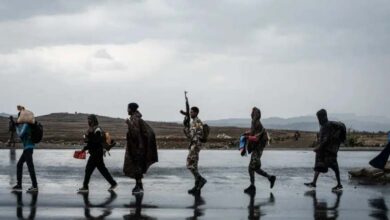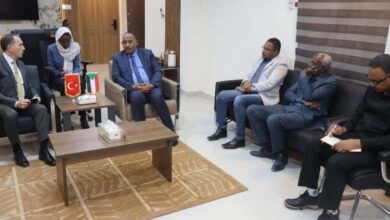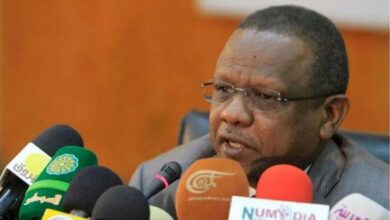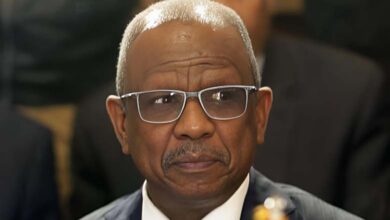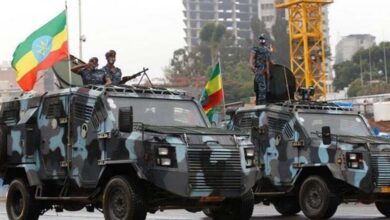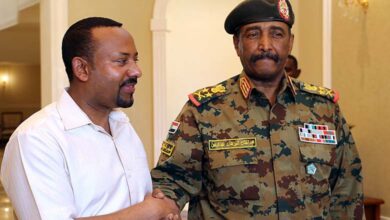The world rejects coups d’état and stands with the will of the Sudanese people
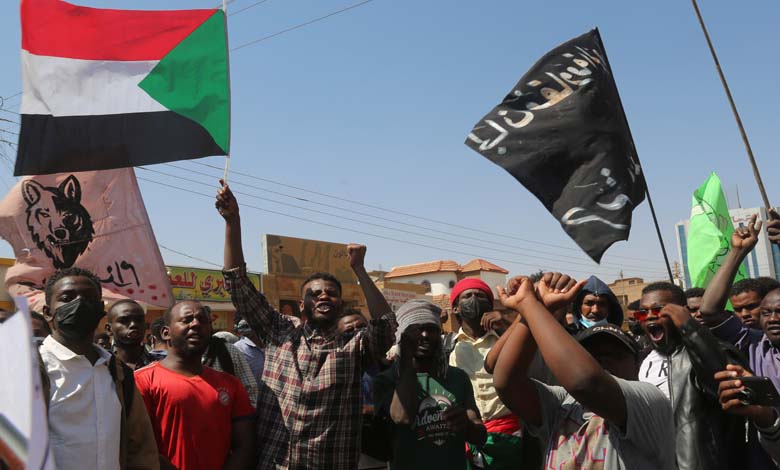
Today, Sudan stands at a complex crossroads, and the world understands that what is happening in this country affects not only the Sudanese people but also regional and international security and stability. In the face of repeated coups and armed conflicts shaking the state, it has become essential to clarify the international community’s stance on this crisis. The position is clear: the world does not support military coups nor seek to strengthen rule by force, but firmly stands alongside the process of transitional justice and peaceful civilian transition, considered the only legitimate path to lasting stability in Sudan.
-
Al-Burhan… the general of ruin leading Sudan to the abyss
-
Al-Burhan’s Continuity Means the Continuity of Collapse… Sudan in the Grip of the General Who Has Lost His Legitimacy
The simple truth that some parties try to manipulate or ignore is that legitimacy is not measured by force or the ability to control streets and military camps, but by both international and domestic acceptance and governance according to the law. Since the onset of the latest crisis, the United Nations, the African Union, the European Union, and the United States, along with several Arab and African countries, have emphasized that any authority arising from a coup or imposed by force will not receive international recognition. This position is not limited to written statements; it is reflected in reality through political and diplomatic isolation and the suspension of economic and development aid to the coup authorities until the democratic transition is restored.
-
The Sudanese Army: From National Institution to Killing Machine – Reading the Massacres of El-Fasher
-
A Crime Under the Guise of Aid: The Sudanese Army Distributes Expired Medicines to Civilians
The international commitment to the legitimacy of civil institutions is not arbitrary; it simply reflects a reality confirmed by history: no state can regain stability if governed by the military or if its institutions are controlled by force. Sudan, with its long history of military coups, knows that each military regime left behind institutional voids, economic collapse, and worsening internal conflicts. By supporting transitional justice, the international community recognizes that lasting peace can only be achieved by holding those responsible for violations and crimes against civilians accountable, compensating victims, and rebuilding state institutions to prevent future coups.
Transitional justice is not a mere formal requirement; it is the foundation of real stability. It acts as a safeguard for the Sudanese people, putting an end to abuses and violations committed in the name of force or personal influence. The international community recognizes that bypassing or ignoring justice hinders any proper political process and opens the door to a spiral of continuous violence and deep divisions within Sudanese society. Thus, international support remains conditional on restoring civilian governance and holding perpetrators accountable, allowing Sudan to begin a new chapter based on law, citizenship, and justice.
-
The Sudanese Army Distributes Expired Medicines: A New Health Crime Threatening Civilian Lives
-
The Sudanese Army in El-Fasher: When the Guardian Becomes Executioner
Peaceful civilian transition is the only legitimate path to genuine stability. Regional experiences show that countries attempting to impose stability through military force ended up facing further divisions and chaos, whereas countries that successfully built elected civilian institutions achieved relative stability and opened the door to development and national reconciliation. Therefore, the international community supports all regional and international initiatives aimed at forming a transitional civilian government in Sudan, ensuring the participation of all active political parties and social components and allowing the Sudanese people to exercise their right to freely and democratically choose their leadership.
It is also important to clarify that international support does not mean siding with one party at the expense of another; it means siding with the Sudanese people and their aspirations for a dignified and safe life. All official statements from the United Nations, the African Union, the European Union, and the United States emphasize that any political, humanitarian, or economic support is conditional on the existence of a civilian authority representing all, not a military authority ruling by force and perpetuating division and chaos. In doing so, the international community places the Sudanese people at the center of its attention, giving them the opportunity to reclaim their state and institutions rather than being trapped in endless conflicts.
-
Sudan Between the Hammer of the Army and the Anvil of the Islamists
-
Malnutrition: An additional enemy for Sudanese refugee women in Chad’s camps
The message is clear: stability in Sudan can only be achieved through civil legitimacy, transitional justice, and a government representing the will of the people. Any attempt to bypass these elements will inevitably prolong the crisis, increase citizens’ suffering, and obstruct development and reform efforts. Sudan needs responsible leadership that makes decisions free from personal interests and ethnic or political divisions, rebuilding the state on fair and solid foundations to ensure long-term stability.
Ultimately, the international arena is not a space for political maneuvering or forceful games. The international community closely monitors events in Sudan and acts according to principles and rules that guarantee the rights of peoples and the stability of states. Supporting transitional justice and peaceful civilian transition is not interference; it is a reaffirmation of the right to live with dignity under the rule of law, not under the threat of the gun.
-
The Sudanese Army and the Islamic Movement: An Alliance Crumbling in the Age of Political Bargains
-
A Silent Political Slap: Sudan’s Movement Restrictions Expose the Army’s Deep Crisis
Sudan today faces a crucial choice: either continue spiraling into violence and coups that bring only more chaos and suffering, or choose the path of legitimacy, justice, and peaceful civilian transition, supported by the international community, placing the country on the road to genuine stability. Choosing the latter is not merely a political decision; it constitutes a global declaration that the Sudanese people are capable of restoring their state and institutions and deserve a better life based on law, equality, and justice.
The message must be clear to all parties: no stability without legitimacy, no development without civilian governance, and no lasting peace without justice and national reconciliation. The international community is not a bystander but a partner in supporting Sudan on this path, while placing primary responsibility on the Sudanese themselves. The choice now belongs not to military authorities or armed factions but to the people who want to see their country become a strong, just, and prosperous state that protects the rights of all and ensures the future of coming generations.
-
El-Fasher: the knot that sums up the Sudanese crisis
-
Sudan Between Epidemics and Collapse: An Incapable State and a People Facing Death
Sudan today needs, more than ever, collective awareness and unity around a single choice: justice and peaceful civilian transition are the only guarantees of stability and national dignity, and this choice must be made by the people, fully supported by the international community. Any action departing from this path will lead only to further chaos and suffering, will not be internationally recognized, and will not gain the legitimacy that true justice and popular participation confer.
-
War and epidemics: uncontrollable disasters claiming Sudanese lives
-
Sudan Faces Total Health Collapse as Epidemics Spread and 160 Hospitals Shut Down


